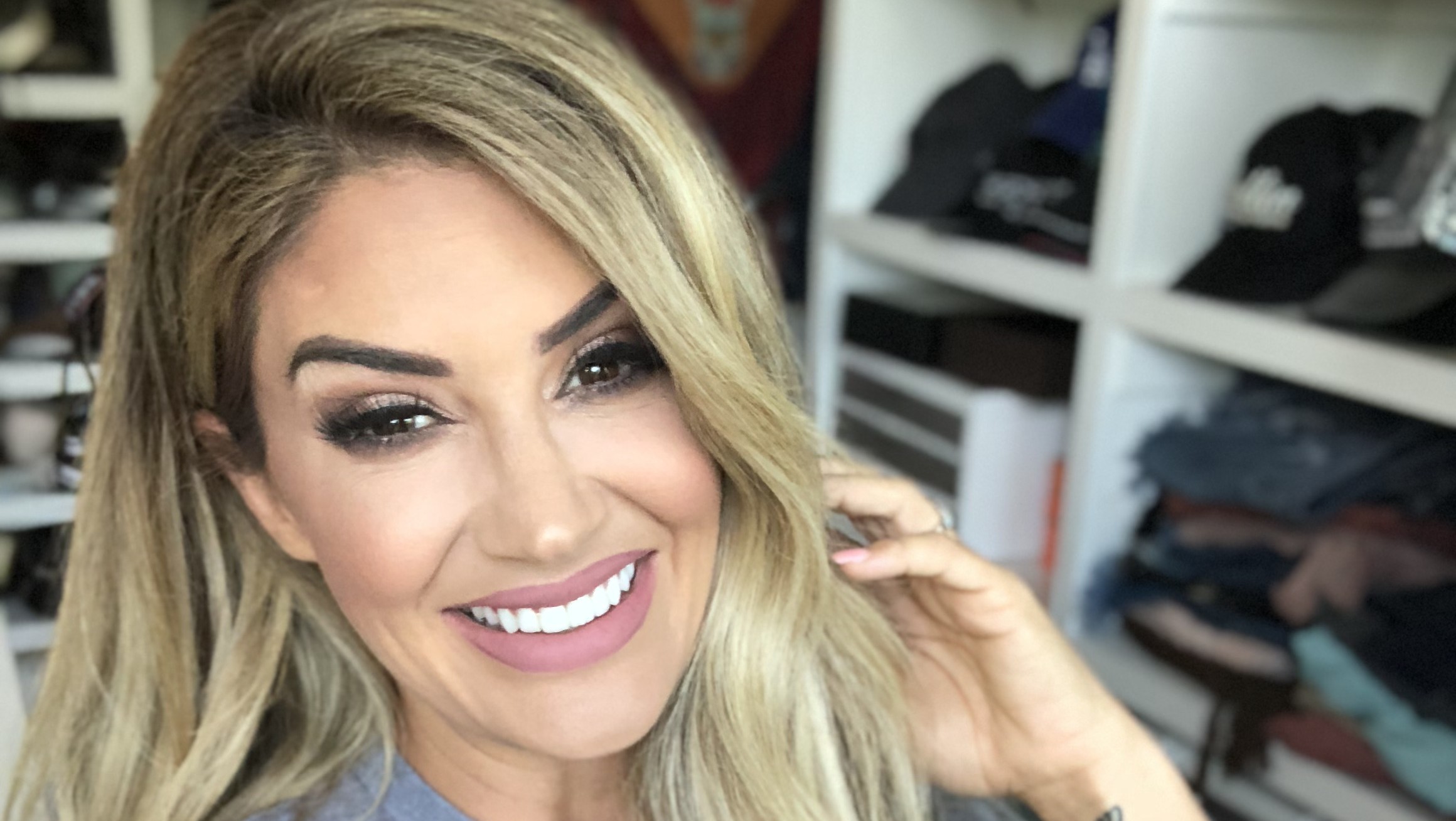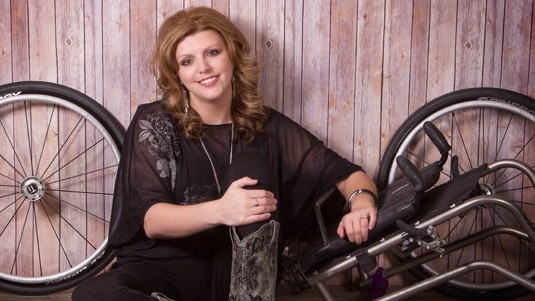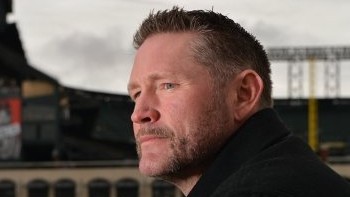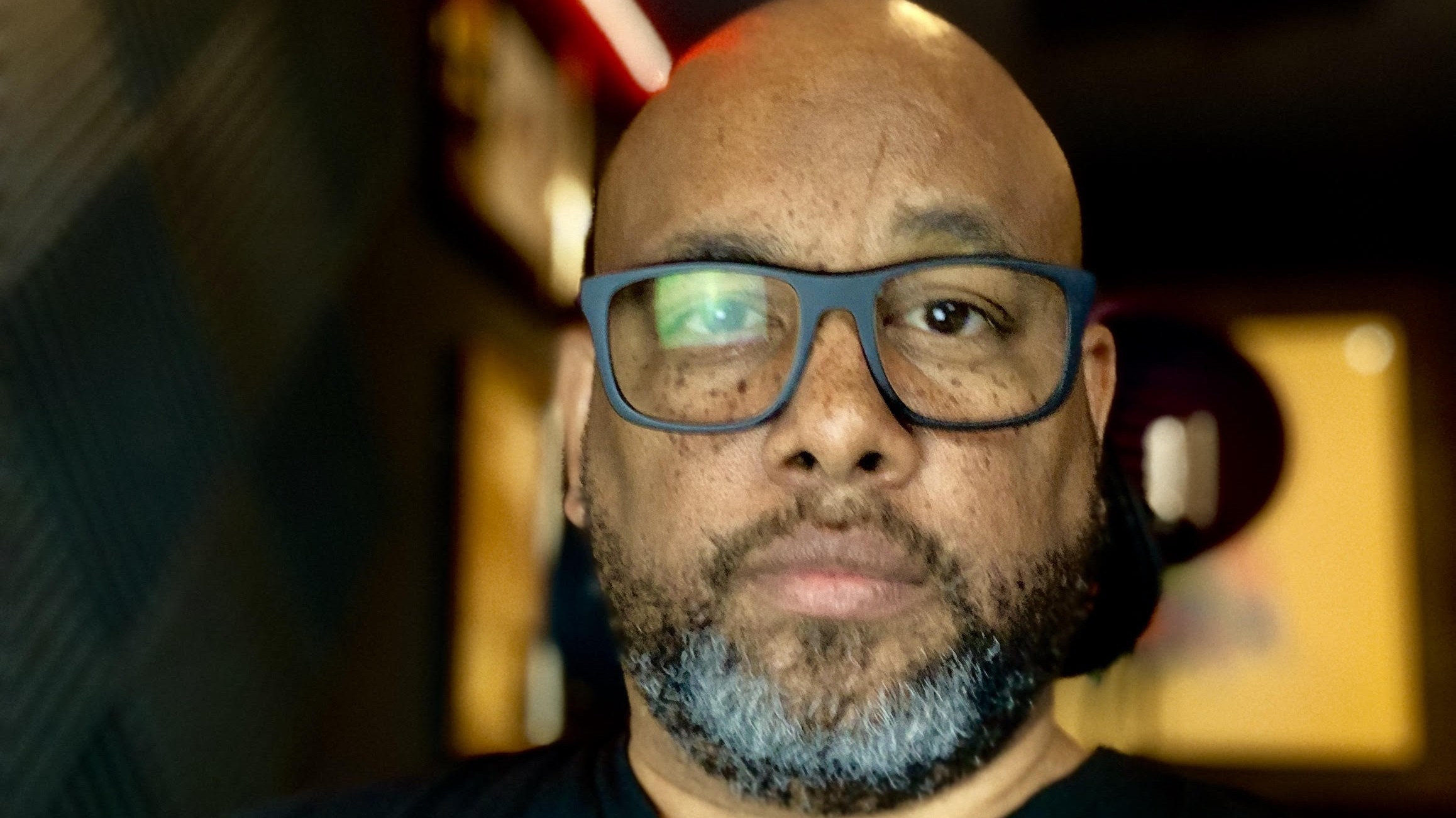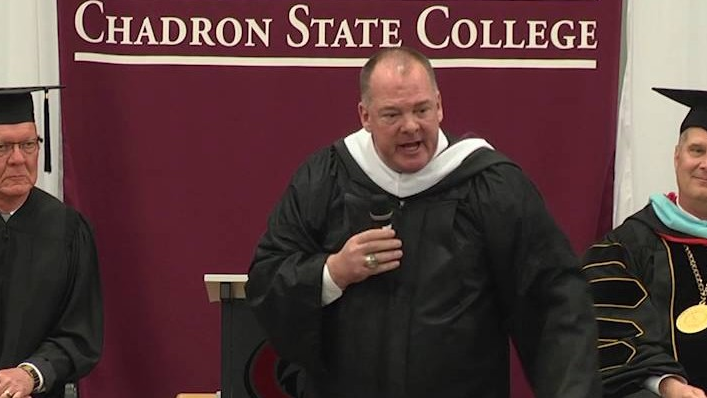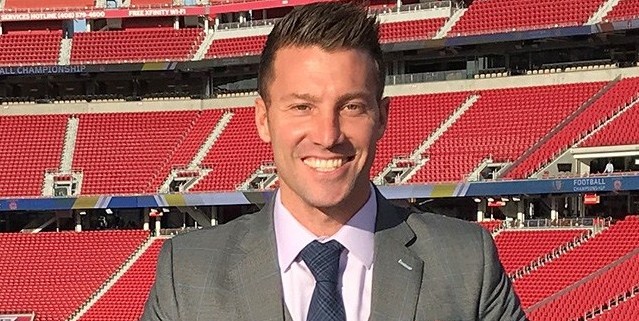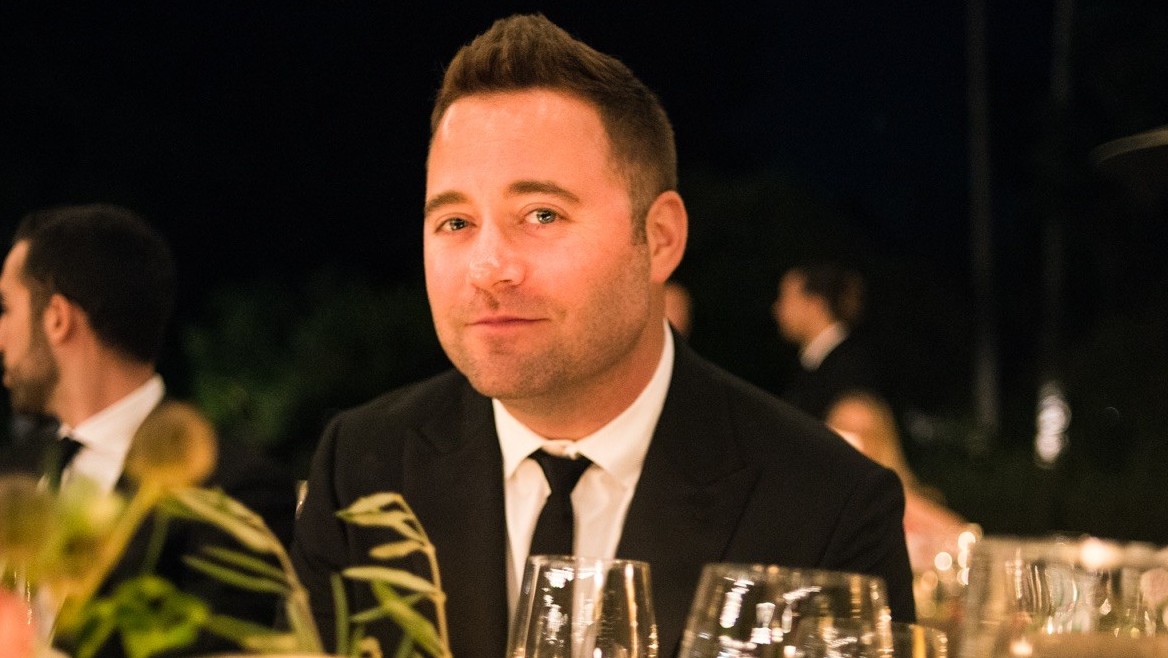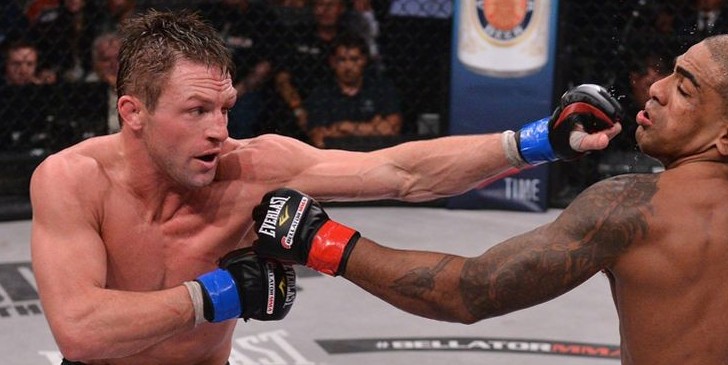
Episode 5 - The Baddest Man On The Planet - Joe Warren
- By Brendan Egan
- Feb 26, 2019
In episode 5 of Let's Engage, Jake and Brendan chat with Joe Warren, dubbed "The Baddest Man on the Planet", a wrestler and MMA fighter, about what it's like to jump in the ring and the mental toughness required to stay at it.
Listen along with Joe and for more information or to book Joe for a speaking engagement or experience, visit his profile on Engage.
--
Jake Olson: Welcome to Let's Engage episode number five. I am your host Jake Olson here along with my co-host Brendan Egan. And of course our producer and technician Daniel Hennes is in the room. We are excited today to bring you a very special guest, one of our talent. He is a championship fighter in his own right. Joe Warren, thank you so much for being on the podcast today.
Joe Warren: Thanks for having me guys. I appreciate it.
JO: Of course, of course. So if, if I'd be remiss if I didn't ask this one question and honestly this could be the only question I guess worth asking in this entire episode. Are you Joe, the baddest man on the planet?
JW: Yeah. Damn right. That's what they call me. You know, we, uh, I was a wrestler, you know, Olympic and Olympic team, olympic wrestler and then switched over to fighting in, um, the first fight was in Japan in front of like 100,000 people. They asked what my nickname was, I said “The Baddest Man On The Planet” and they just started laughing and I just kinda kept it kind of going it, it came from, um, when I won a world title in Greco Roman Wrestling in like 2007, I got off the stage and all the reporters asked how I felt and I said like the baddest man on a planet, it kind of stuck and I just ran with it. You know what I mean?
JO: I got, it's intimidating. I got gotta say that. Oh, I definitely wouldn't want to fight the baddest man on the planet. I mean, that's a, that's it seems like a handful, but, and you are a handful. It's tell that much after, after watching some of some of these fights. But, so what, what is Greco Roman wrestling?
JW: Yeah. Greco Roman wrestling is the oldest and greatest sport. You know, it's the first Olympic sport ever. Um, it's, uh, there's a freestyle and Greco Roman wrestling that is competed in the Olympics. Freestyle wrestling is kind of like to collegiate wrestling that you guys have all seen growing up to high school and college wrestling and in Greco Roman is all upper body, so you can't, you can't grab the legs, you can't trip, you could just do body lock throws, headlocks, and pummeling. It's, it's more like a kind of a fight. It's just a little different, you know, all the other countries are still focused on that and we kind of ran from it so. Uh, I was one of only four Americans ever to win a world title in Greco Roman wrestling so. Pretty excited about that, when I moved out here.
JO: That was awesome. Uh, so you know, between Greco Roman wrestling, you know, boxing, MMA, all these different fighting styles, what is your favorite?
JW: Yeah. You know, I'm a wrestler, so, you know, bottom line, you know, that's kind of what we kind of all revert back to is you've, what's your, um, what's your first Ford is or what's your, you know, your best go to sport, really in MMA. There's a few of them. There's Muay Thai, there's Jiu Jitsu and wrestling. And so, uh, me and my base is wrestling so I usually end up, I end up getting to the guy's body in a controlling him on top.
JO: Right. Okay. So it, so I guess why, what, what that, what made you start wrestling? Do you have a deal? Did you have like a, a older brother that would not stop picking on you or, I mean, what, what, what, what got you into wrestling?
JW: No, I was the oldest kid. I just a, I had friends that were wrestlers a and a, they brought me to practice and their dad's wrestled in college and they just kicked the crap out of me. And I don't know what happens. You gotta be kind of a little bit of a crazy person to be a wrestler.
JO: Absolutely
JW: It is a self-gratifying sport. You win medals, you don't win a lot of money. Um, and uh, you know, it's kind of tough, you know, it's a one on one. You have a team aspect, but the team can't really help you with it. I just started to wrestle and, um, I just kind of got the, the niche, you know, I liked it. I liked, I hated losing. I just understood that I was a technician and the better technique I had it didn't matter the size of the person that I could beat them. And then a, at a young age, I learned my mindset is mindset skills, you know, mentally how to talk myself into winning, how to, you know, you know, perceive myself as a champion. And I, and I learned this as a, in it at a young age and I was able to implement it into my training and who I was as a kid. And it kind of changed the way I saw athletics and the way I won.
JO: Yeah, no, absolutely. Uh, with, with that mindset, you know, when you, when you go into a ring with someone in obviously in a physical sport like wrestling or you know, the other fighting styles, I feel like it does take kind of a little, a different mindset than any other sport in the sense that, I mean, you really are there not the necessarily injured the other person, but I mean to really physically dominate them actually, literally.
JW: Yeah. Mixed martial arts in MMA, it's extremely dangerous sport, you know, I'm, I didn't respect the sport for a few years. I think really until, um, I just didn't fit, you know, I didn't respect it. You know, I was winning fights just because I was such a great wrestler. And, um, I was just tough, mentally tough. But then it got to a point where, you know, it's just a really skilled set and, um, athletes are so technically sound at every sport that they do. It's a very dangerous thing. You're in the cage and the way you win is one person goes to the hospital or the other, you know, you, you put, put the man to sleep or you, um, you know, or the guy taps. So it's, it's strange. It's very unpredictable to them. A lot of other sports, you know, basketball, wrestling, usually the person is technically more sound than the other team or technically is more sound than the other person usually wins nine out of 10 times, you know, football games, basketball games. But in MMA that goes completely out the window. Uh, you know, it's, um, it's a dangerous sport and extremely unpredictable. You can get hit at any point and go to sleep. You understand? It doesn't matter how technically sound you are or mentally strong you are, it's a physical reaction. You know, you get kicked in the side of the head and you go to sleep, you wake up in the locker room and you can, you know, bitch and moan about it, but you, you just lost. You know? And so it's very unpredictable. You can, you know, usually the guy that's in the better shape or you know, more mentally a little sounder, you know, that that athlete usually wins. And in this sport it's a, you know, you keep your Chin down and hopefully you don't get hit with a big, a big bomb right away and go to sleep, you know? So it's a, it's unpredictable.
JO: I was going to ask you later on, but I'll just ask it now that you’ve brought it up. You've had wins by knock down. What did it feel like to knock someone out, and what does it feel like to be knocked out?
JW: Yeah. You know, I, in the beginning of my career, I just didn't think anyone could knock me out or I couldn't get knocked down. You know, I just thought you could hit me with a truck and I wouldn't fall. Um, and then, uh, one time, uh, I was defending my belt and I got punched with the left hook, the first punch of a fight in my, and it hit me and, uh, in the chin and I went to sleep and woke up like in the locker room. So it's, it's a completely crazy experience, you know, to knock a person out and your adrenaline's going crazy and you're jumping on the cage and you won money and you're happy as hell. To the point to getting knocked out, and waking up, seeing a few people looking at you, you're on your back and them saying “It's all good. You just went to sleep” and now you woke up and you're sad and everyone else is happy. So it's, it's just completely polar opposite. You know what I mean? It's, uh, people say that they don't get that rush. They can't get that rush from knocking a person out than in any other place than in a cage. You know, it's, um, personally I'm a realist and uh, I understand this could happen to me as quick as I could do this to the other man, so I'd rather not have it have it happen to either of us. My wife says a lot, you know, make sure a, you put him into the hospital first so we can go hang out with our friends. And I'm like, well thanks I appreciate it, it, you know, it's not like, I'm not trying to do that every time.
Brendan Egan: Joe, I'm kind of curious. So a lot of the sports that are super physical, you know, they say mental toughness and mental ability is, is a huge part of every sport. And you think of, you think of football, you think of hockey, you think of some of the sports people get injured and that are more physically tolling and violent and, and those are all team sports. Then you look at MMA, you know, where it's kind of you and the other guy, like what's the toll? I mean, how do you prepare yourself? I mean, you, you don't have, you know, there's not another teammate that's there to help you lift you up. So how do you prepare yourself mentally and physically for, for a solo sport where you're, you know, you're physically and mentally being tested every time you jump in there?
JW: Yeah. You know, I mean, we were, I, I'm part of a team called Factory X out of Denver, Colorado. Um, Marc Montoya as a coach of mine. It's a team. It's MMA team and we train together. But what you said is right, you know, like a training, I believe the days of training a team all the same from high school to college, from sport to sport, high school. I mean wrestling to basketball or football, those days are over. You know, technology's finally caught up to us to the point where we can technically train in the individual athletes. You know, like the Phase IV with more Robert Forster. The kind of training that they do with me it's metabolic training. They test me like a car, they test, what kind of engine I have and how much oxygen needs to go in, like the um, gas so I can perform. And, and so, um, it's the days of training individual athletes, um, all the same to win are kind of over. So the whole sport of MMA is, is, is you can still train with a team, but it is very individual because you have an individual striking coach, usually have an individual wrestling coach, an individual, you know, a Jiu Jitsu coach and then you try to work it all together. But it's very personal. So it's, it's just a different idea. I, I was a team sport person for so many years that when I switched over to MMA, it was nice for me to have individual private coaches instead of a, that team atmosphere. I was a little older and, um, you know, if I had an hour, I'd like it to be all with me instead of somewhere else.
B: Sure. Of course. Speaking of treating Joe. So, so for some of our listeners that maybe are into MMA and maybe even some younger guys, um, what, what are some of your biggest training tips? What are some of the things that you do to give you an edge?
JW: Yeah, and I just hit on that a little bit Phase IV Athletics. They’ve ran all my training since, uh, the Olympic team probably 10 or 12 years ago, Robert Forster as metabolic training. It's a, you know, it's VO2 Max. Um, which is, which is a run that tests, uh, I mean the oxygen going in and out and it kind of pretty much like I said, it tests you like an engine to see what the stakes are. Then it goes, it shows you the best way to train. So you don't overtrain we've been in the, the whole idea of overtraining for so many years. Just run through the wall. Don't worry what it does to your body, just win, and now you know, for longevity and injury prevention, um, it's um, you know, it's just smarter to use you the other way. Science has finally caught up to us. So instead of listening to your coach, you can listen to your watch, you know, might get you might little little better result out of it. Uh, so it's, uh, I think just being smarter with my training, understanding that less is more. Um, and having a group of people kind of monitor it. I think that's kind of my training tip.
B: I know this is, this is a hard question to answer and, and this is one of my favorite questions to ask people like you, but you know, all the training stuff is awesome, right? But the guy across from you could be doing all the same stuff. So what does it, what sets you apart? Like what do you think puts you on that world stage that makes you a champion? What is there something, Joe, that you can pinpoint that you do differently, that you do better, than you do stronger? Are you just willing to go the extra mile? Like what, you know, what sets you apart from you cause you have a consistent record of, of championships and being a winner. So like what, what does it take to get there? Is it, is it mental toughness? Is it physical, is it both? Is it a, is it something else? Like what gives you that x factor?
JW: Yeah. You know, everything you said was correct. I mean it takes a lot of things together to get it done. It's a mindset like we talked about earlier, you know, me, you know, telling myself I’m the baddest man on the planet and no one can beat me and just kind of brainwashing myself into believing everything that I'm supposed to believe to the point where, you know, like I said, I brainwashed myself into being the baddest man on the planet. And at that point, you know, technically if I'm trained correct, a lot of us are all trained similar. Um, the little edge of training, like the whole metabolic training or the Phase IV that gives me an edge, the edge of the competition I've had in the past. You know, I've been competing since I've been a young child. Uh, every weekend, winning titles, being used to being on top. Um, those are also things that are beneficial to kind of give you one notch more when it gets really tough and you're used to being in those mentally tough environments. So it's a, it all runs in there. Uh, that's why in the cage, like I said, it's a different aspects, you know, um, a lot of the technique comes involved who's better technician, who's the better, who's got better footwork in boxing and things, but then when it becomes full contact, a lot of that kind of falls out of the box, you know, that this striking or a technique la, um, you know, it shows a lot in the beginning, but fades away and into more mental tougher, the guy that's more conditioned or trained better shows. So it’s all kinda is it, it's all up in the air and with MMA it's, it's a harder thing to predict. Another other sports.
JO: I remember I did some self defense classes last year, part of a class they teach here at USC, and I, you know, I, I, I'm a pretty big strong guy, but man, grapple for like two minutes on the floor and you're just like sweating and out of breath. This is a completely different different type of energy usage of your muscles and your lung.
JW: Yeah, it's, it's different. I mean, I even with striking too, I mean, you can everyone that's, I'm not used to wrestling says that's the hardest conditioning sport for them. Once they get to the ground, it's so hard for them to recover. And uh, but if you stand up, did you just stand up and getting some space and try to punch as hard as you can in the air for just try 30 seconds, you're not going to make it. Okay. Um, this is what they taught me when I first started. I got into a room where I had space and I just tried to punch as hard as I possibly could for as hard as long as I could. They didn't want like 10 seconds, five seconds. Like you don't understand how tired you really get from punching like that cause you never do it, you know, running, you understand that. But you know, um, that really shows the different kinds of, you know, you have all these world champions mixed together. All their sports mixed it together. They're the best technically at this point. But physically they're not good here or you know, um, condition wise they are not at the same level as this guy and that's what makes MMA kind of fun. They mix those people together, you know, when they see what happens.
JO: I know in boxing reach is, you know, kind of uh, what they, what they look for in like a quarterback at hand size sometimes, but I'm 6’3 or 6’4”, you’re 5’6”. What, what advantages does, you know, there's a lot of, you guys know a lot of the MMA guys are, are, are short, they are not more than 5’8” or 5’9”. So does being short have an advantage in terms of the fighting style?
JW: Well, you know, with the wrestling or MMA, you know, we have weight classes. So, um, you know, that's the kind of cool thing about it. You know me, I'm, you know,5’6” sexy size, you know, 150 pounds. You know, that's, you know, I fight other guys the same size as me. You know, sometimes a guy might be 6 feet tall, and weigh 135, you know, it all, it all changes or a guy is little, but then, you know, the weight classes get different, 170-180-190, you know, those guys are 6’0” or 6’6” or 6’4”. You know, they're big, big bodies, you know, so it does, it all depends. You know, some people say a reach matters in boxing. Some people say hand size matters in wrestling and it's all kind of, it's up in the air. It's how the person uses it. You know, if you have big hands, you use them well or not, you know, um, it's all in that, that's kind of the thing with MMA, that's really strange because you see the difference there. You see a that is 6’2” fight the guy that's 5’6”, you know, like it's, uh, it's really kind of, it's hard to say if it is, it's an advantage or not, you know, unless to see who you're competing against. Um, you know, it's, it's kind of a match up game, MMA. You know, you're only as good as the guy you're fighting or your last fight.
B: Joe, what's on the, what's on the horizon? What do you have, uh, any big events or anything big up come in or what's a, what, what's, what are you up to these days?
JW: Yeah, I'm in Telluride, Colorado right now. About to go skiing, uh, pick up the kids from school. But, um, yeah, I mean, I should know fairly soon here when my next fight is, they're not letting me know. Uh, but you know, so I'm kinda waiting for that. And just training. Started a wrestling club in Telluride, Colorado. So, uh, I'm going to be doing that for the first time. I've done that.
B: So that's awesome. What's it called?
JW: It is going to be the Warriors Wrestling Club. There's going to be like Joe Warren warriors. Yeah.
B: Beautiful. Beautiful. As it is that, is that geared towards uh, towards youth or towards other professionals or?
JW: I, I'm, I'm going into the high school. I'm going to work with the gym classes, like 10 minutes at each class. Just show them what it's all about. They don't have wrestling gear, so, and then maybe do it just once a week, an hour to kind to get people excited about it.
B: That's awesome.
JO: I know you’ve been volunteering, you're doing kind of clinics with MMA and I know that, that, helps people being that in that realm now. It definitely is something you're passionate about it, right?
JW: Yeah. You know, I just technically, you know, I believe on the most sound athlete in the country with wrestling. Just cause I've wrestled all three styles and so I've always wanted to give back and I just had been training so much, I haven't been able to, you know. So now it's to a point where my kids are to the age of, uh, being able to learn how to wrestle and I believe that's what I do best. So I should probably get that back to them. Even if they don't use it.
JW: Well, Joe, you, you need to toss a log, man, we love, we love the mindset and training that goes in preparation that goes behind success. I know that if it's in a wrestling or mixed martial arts or whatever, fighting style or if it's in business or wherever, whenever you're trying to accomplish in life, those are huge factors that come into play with mindset and training, preparation and everything else. So we know that your story can reach many, many people. Um, I know that personally, Joe, I would not want to meet the baddest man on the planet in a cage or in a back alley or anywhere. Um, I can tell you that for sure. Um, so maybe, uh, maybe we can grapple some time.
JW: Yeah, no problem. We'll get together.
B: Jake. Jake, I'd love to watch that because 5’6” vs 6’4”. And I know where my money is going. So, yeah.
JW: Yeah. The 5’6” guy.
B: Baddest guy in the world.
JW: The little guy. You don't want to mess with that guy that's actually trained to do that. That's a problem. You walk around these days. You never know who you're going to run into.


